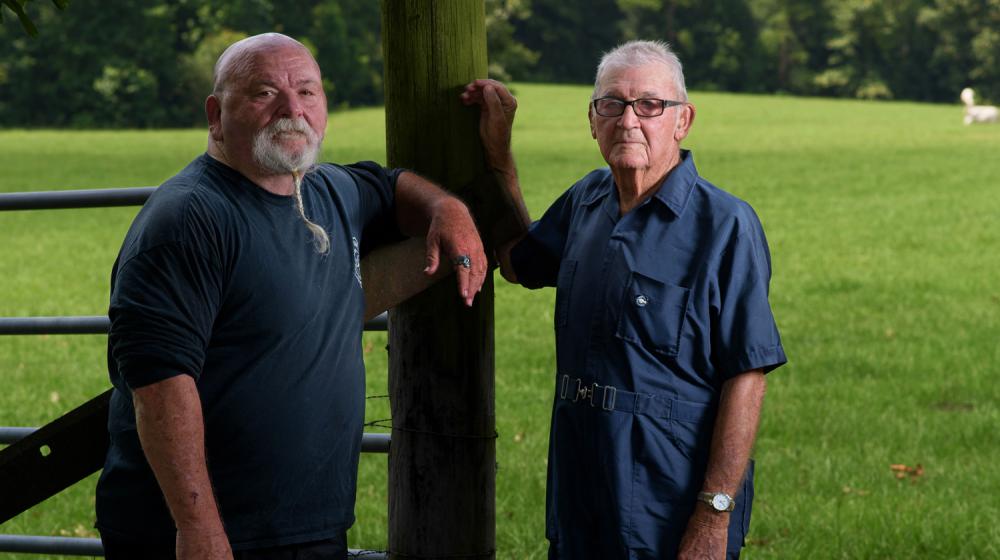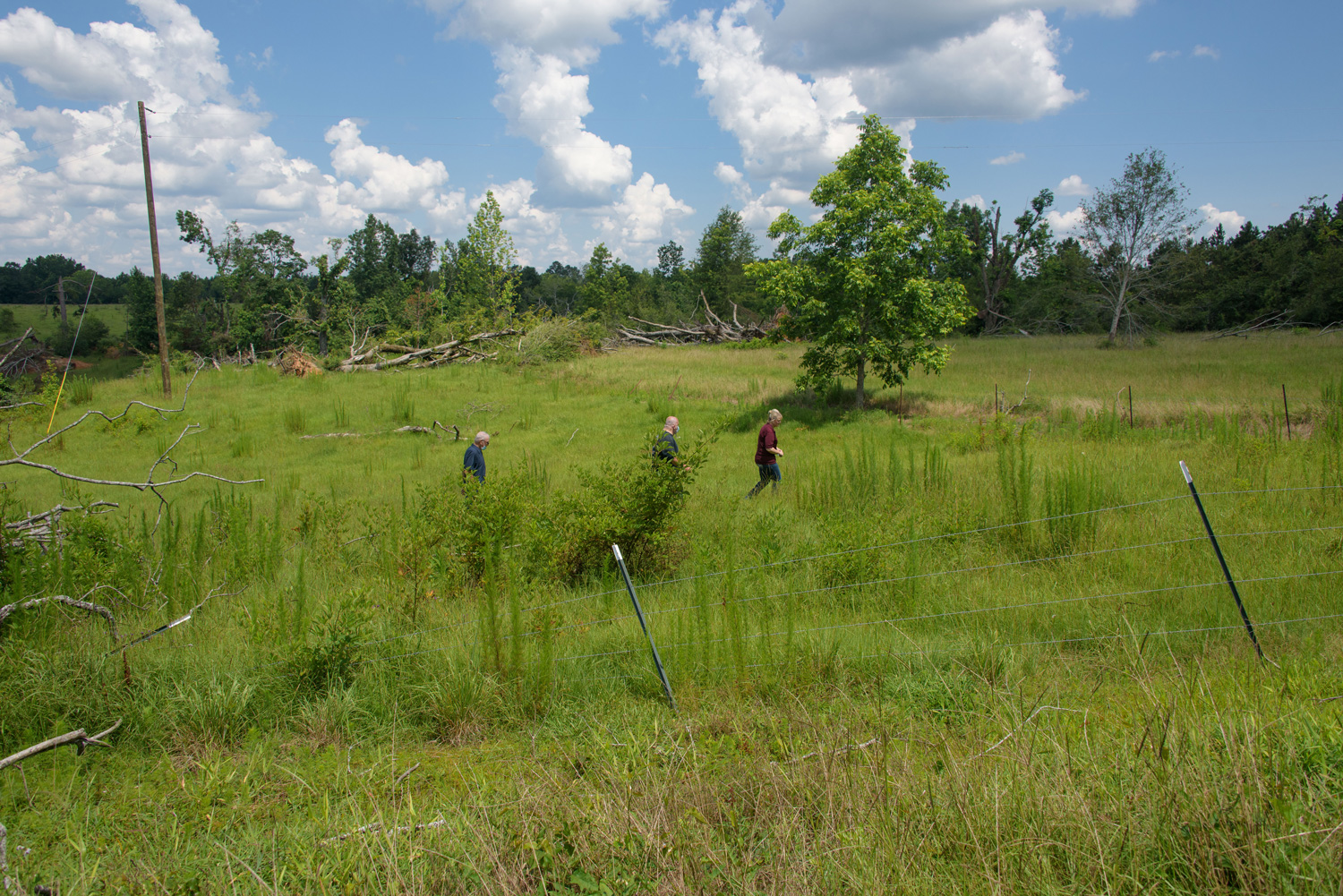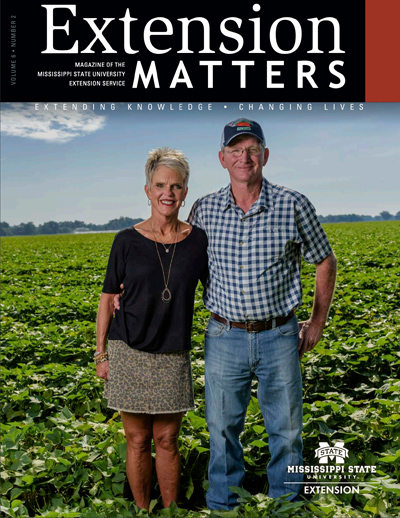After the Storm

Terry Joe and Hulon McKenzie work together to keep their small family farm going.
Extension helps clients with disaster recovery
Story by Susan Collins-Smith • Photos by Kevin Hudson
Hulon McKenzie had various jobs over the years. He worked in the oil field, hauled cattle cross-country, and dispatched for a trucking company. But none of them matched the work he did on his small family farm in the Tilton- Sauls Valley community of Monticello.
“I have always loved farming,” he reminisces. “I was raised on a dairy farm and have been around cattle all my life. Living on a farm brings a lot of rewards—peace, contentment, and being your own boss. It’s a great place to raise children and teach them about what God gives us and how to take care of it.”
Hulon McKenzie, who is 90 years old, moved to the farm when he married his late wife, Anna Loyce, more than 60 years ago. It’s where they brought up their son, Terry Joe McKenzie. And it’s where Hulon McKenzie still enjoys raising a few cattle and taking care of various chores.
Video by Brian Utley
“He does a little bit every day,” says Terry Joe. “He might spend 5 minutes doing something or 30 minutes doing something. He loves it, and it keeps him going. And I enjoy helping him.”
“I can assist in damage assessment, but I recognize that a professional forester is needed in situations like this. I can make those connections.”
— AMANDA MASHOLIE
The 400-acre farm, which was his father-in-law’s, consists of a small herd of cattle and about 200 acres of timber.
“My wife always said it was the prettiest place in the world,” Hulon McKenzie remembers.
On Easter Sunday, April 12, 2020, the landscape changed. Two tornadoes roared through the area, leaving behind a path of destruction and taking the lives of two Lawrence County residents who lived just 4 miles from Hulon McKenzie.
“I was at my dad’s house when the tornadoes came through,” the younger McKenzie explains. “We got under the kitchen counter to take cover during both rounds. After the first one went through, we got up and looked around outside and everything was okay. But after the second one went through, it looked like a bomb had gone off.”
A tree had fallen on both of Hulon McKenzie’s vehicles, and the debris made it impossible to enter or leave his property. They would later discover that about 100 acres of timber and several fences had been destroyed.
“It doesn’t look like our place anymore,” Hulon McKenzie says. “It completely changed the scenery.”
But there’s one thing the tornadoes didn’t change: the heart of the community. It’s a place where neighbors help neighbors.
Despite the state being under a shelter in-place order because of COVID-19, their community showed up to help, observing social distancing measures.

Amanda Masholie, Mississippi State University Extension Service agent in Lawrence County, was one of the first to arrive the day after the tornado hit. She gave them information about storm damage reporting and how to get help with cleanup.
“She was the first one to come check on us,” Hulon McKenzie says. “She is a fine lady and does her job well. She cares about the people in her county.”
Masholie says her focus was on how she could best help her clients.
“I can assist in damage assessment, but I recognize that a professional forester is needed in situations like this. And I help them make those connections,” she explains. “Losing timber is not like losing a corn crop. You can replant corn, but timber takes a lifetime to grow. Not only is it a monetary loss, it’s a very emotional loss.”
In the days to follow, droves of friends and family came out to help with the cleanup process.
“I was concerned about my dad considering COVID-19, but I knew that if he did not come in contact with droplets that contained the virus, he’d be fine,” says Terry Joe McKenzie, a retired science teacher who taught microbiology. “We maintained our physical distance, and no one got sick.”


